Although you won’t wake up with a cold or flu by going to bed with wet hair, there are other consequences that it can have, mainly pertaining to hair health. Some others can have surprising effects on your skin and body.
The habit of going to bed with wet hair has a number of side effects. If you’re a nighttime bather, some of these side effects might make you consider switching up your haircare routine and investing extra time in drying your hair before letting your head hit the pillow.
We came up with a number of ways that sleeping with wet hair affects your health and your looks.
1. It may cause scalp irritation.
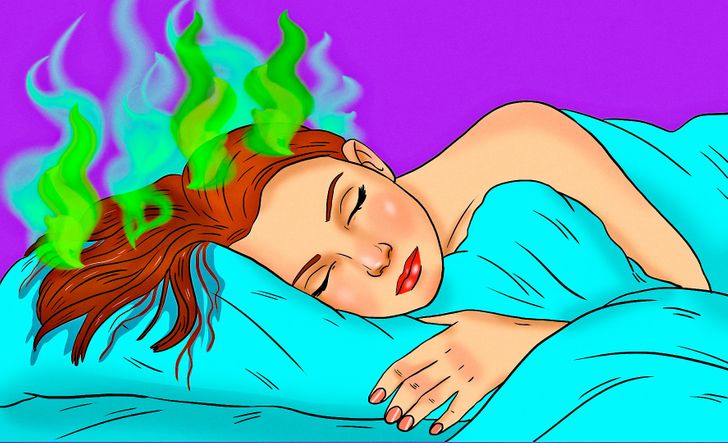
Ever experienced the disturbing feeling of an itchy and irritated scalp? Usually we blame our shampoo for that, but the reason for this uncomfortable feeling may be the habit of going to bed with wet hair. Diseases of the scalp, like dandruff, can occur when you sleep on a damp pillowcase. When we sleep with wet hair, a humid and warm environment can increase bacterial growth.
2. It makes hair knotty.
Wet hair is fragile. When you go to bed before drying your hair, it can get tangled during your sleep. In the morning, your hair will be unruly and hard to detangle and it can add extra stress to your morning routine.
3. It may give you a headache.
If you go to bed with a wet head, chances are you will wake up with a headache. Some haircare experts say that sleeping with wet hair lowers your body’s temperature and it causes a headache as your body tries to warm up. Other specialists believe that going to bed with your hair wrapped in a towel causes pain and can even interrupt your sleep.
4. Your hair becomes frizzy.
Going to bed with wet hair won’t lead to serious health problems, but it will affect how your hair looks. Damp hair creates stronger friction against the pillowcase, making your hair frizzy. Taking extra time to dry your hair before bed can save you the money that you’d spend on anti-frizz products.
5. It won’t let fine hair gain volume.
Thin hair is delicate and lacks volume. Sleeping with a wet head is especially damaging to this hair type. It can’t regain volume that easily, that’s why if you regularly go to bed with damp hair, it will make it appear even less voluminous.
6. It’s one of the main reasons for split ends.
How often does your hairdresser tell you that you need to trim your split ends? The habit of sleeping with wet hair is one of the reasons why you need to cut your hair so often. Since wet hair is vulnerable to breakage, tossing and turning in your sleep may cause split ends.
7. It causes skin irritation.
Sleeping with wet hair affects, not only your scalp, but also your skin. When you toss and turn in a dream, hair can get on your face. The combination of wet hair and the temperature in your bedroom, can provide the perfect conditions for the growth of skin-irritating bacteria.
Hair breakage
Hair is most susceptible to breakages when it’s wet. It can absorb 45% of its own weight in water. Involuntary head movements during sleep inevitably lead to your hair being pulled in a whole manner of different ways, increasing the risk of breakage.
Tangling

Wet hair is a lot more likely to tangle than dry hair, and tangled hair leads to knots, which you then have to brush out. Many women have a tendency to not brush their hair after getting out of the shower for fear of damaging the hair shaft and causing breakages, but the solution to that problem is to run either a wide-tooth comb, boar bristle brush or even your fingers through your wet hair, then towel-dry as usual.
Dandruff
If you have dandruff due to a dry scalp, eczema or even a fungus, you should know that its effects can be exacerbated by sleeping with wet hair. Warm, dark and moist conditions are particularly enjoyed by fungi, and your scalp is all of the above when you go to bed with wet hair.
Dullness

Your hair’s shine comes from its natural moisture and scalp oils. Placing a wet head on a dry pillowcase leads to the moisture and scalp oils being absorbed by the fabric, which leaves your hair shafts dehydrated, thus making your hair appear dull.
Ringworm
Scalp ringworm is a highly contagious fungal infection that can be terribly itchy and even cause patchy hair loss. It grows in red, scaly circles and is fostered by damp, warm conditions. If you have suspicion that you might have scalp ringworm, go and see a doctor and ensure that you dry your hair thoroughly after each time you shower.
Bacteria and Mold

Any bacteria or mold that happens to be lurking on your scalp can grow out of control in a warm, damp environment. It can cause a flaky scalp and even lead to hair loss. Furthermore, sleeping with wet hair leads to these microorganisms penetrating your pillow, so that your scalp will be re-infected every time you lay your head on it.
Headache
Should bacterial growth take hold of your scalp, your body will try to fight off any infection it may cause by increasing blood flow to the affected area. This increased blood flow also increases pressure and can lead to a headache.
How to Take Care of Your Hair Properly
• Towel-dry your hair as soon as you finish showering
• Try using a diffuser on your hair dryer or gently blotting your hair with a cotton T-shirt to get rid of any excess water
• Silk or satin pillowcases are less abrasive than cotton, thus minimizing the risk of hair breakages as you sleep
• Gently twist or braid your hair and lightly fasten with non-pulling hair ties
• A leave-in conditioner is a great way of maintaining hair moisture without having to leave it wet
• Avoid leaving your hair wrapped in a towel when you sleep. This can lead to increasing the chance of microorganism overgrowth
• Allow your hair to have the opportunity to dry properly by avoiding wrapping it tightly or putting it up in a bun before you sleep
• Bathe earlier in the evening to ensure that your hair is completely dry by the time you go to bed
• If a hairdryer isn’t really your thing, you can always try sitting in front of a mechanical fan to dry without the application of heat
• Try using a diffuser on your hair dryer or gently blotting your hair with a cotton T-shirt to get rid of any excess water
• Silk or satin pillowcases are less abrasive than cotton, thus minimizing the risk of hair breakages as you sleep
• Gently twist or braid your hair and lightly fasten with non-pulling hair ties
• A leave-in conditioner is a great way of maintaining hair moisture without having to leave it wet
• Avoid leaving your hair wrapped in a towel when you sleep. This can lead to increasing the chance of microorganism overgrowth
• Allow your hair to have the opportunity to dry properly by avoiding wrapping it tightly or putting it up in a bun before you sleep
• Bathe earlier in the evening to ensure that your hair is completely dry by the time you go to bed
• If a hairdryer isn’t really your thing, you can always try sitting in front of a mechanical fan to dry without the application of heat

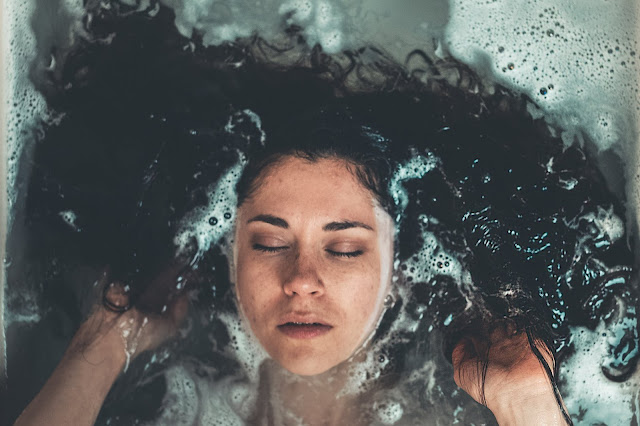
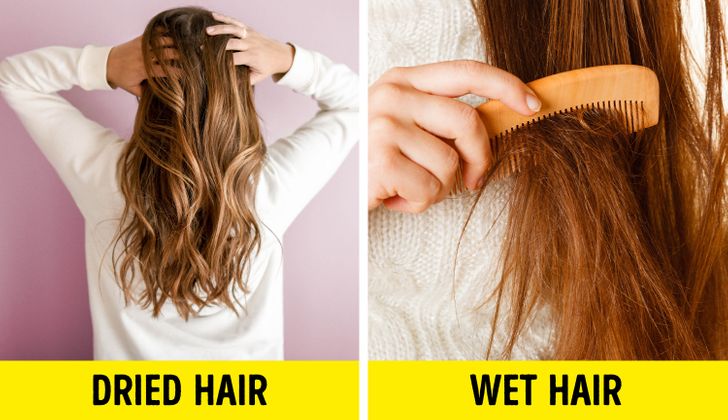
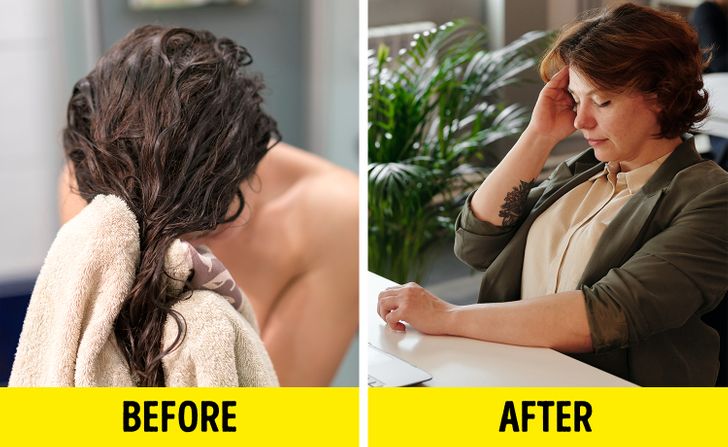
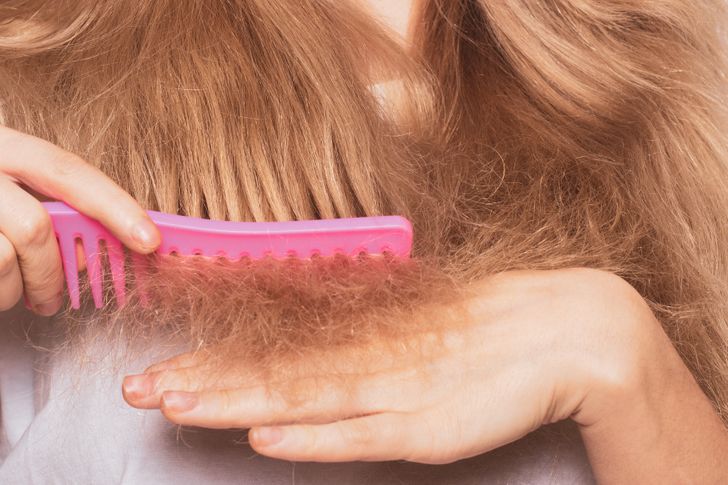
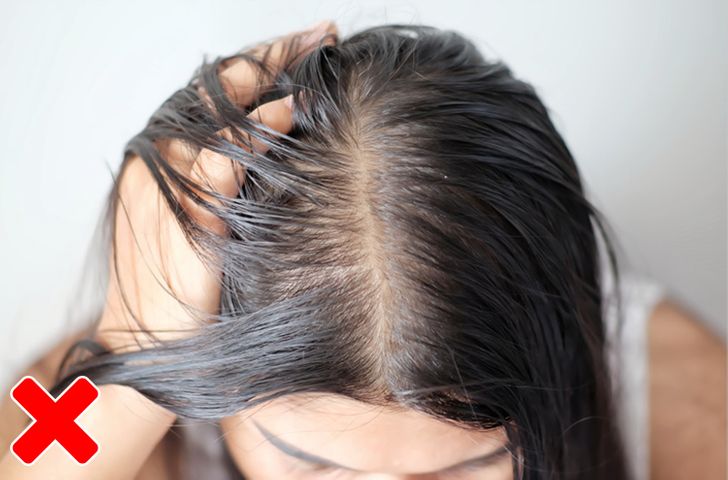
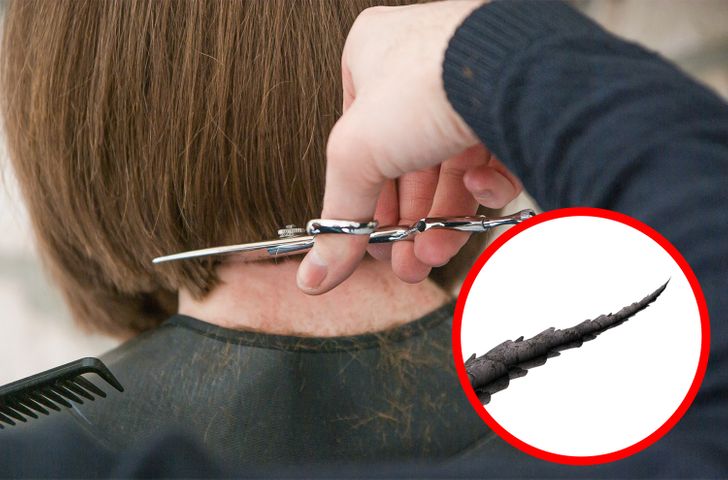
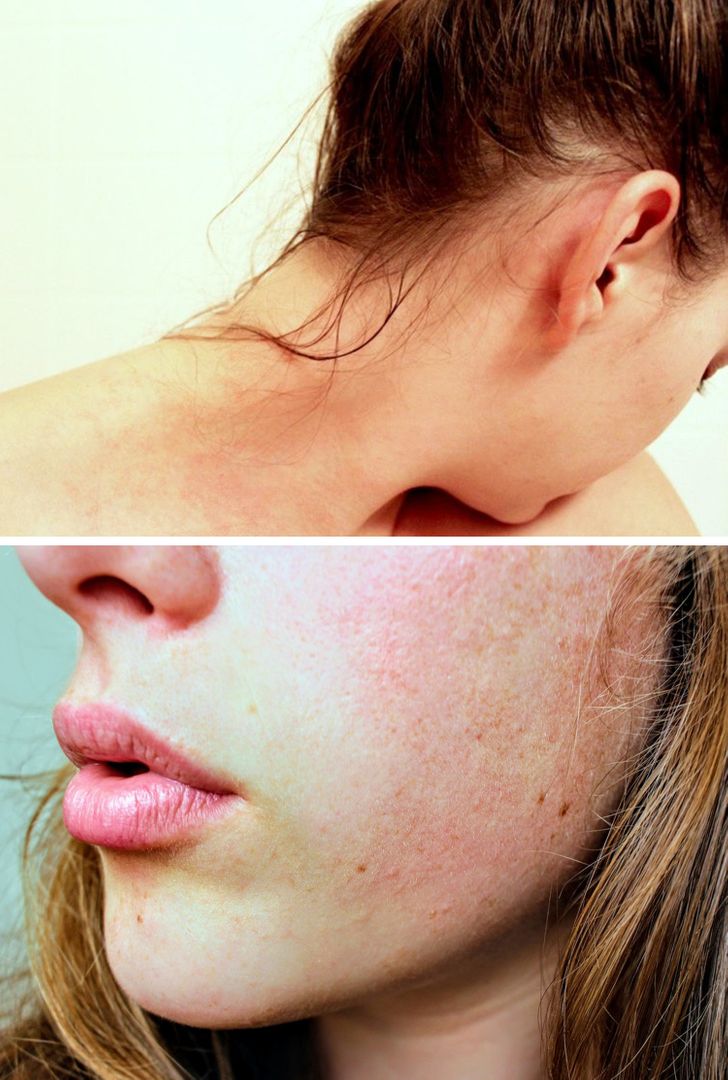























No comments:
Post a Comment